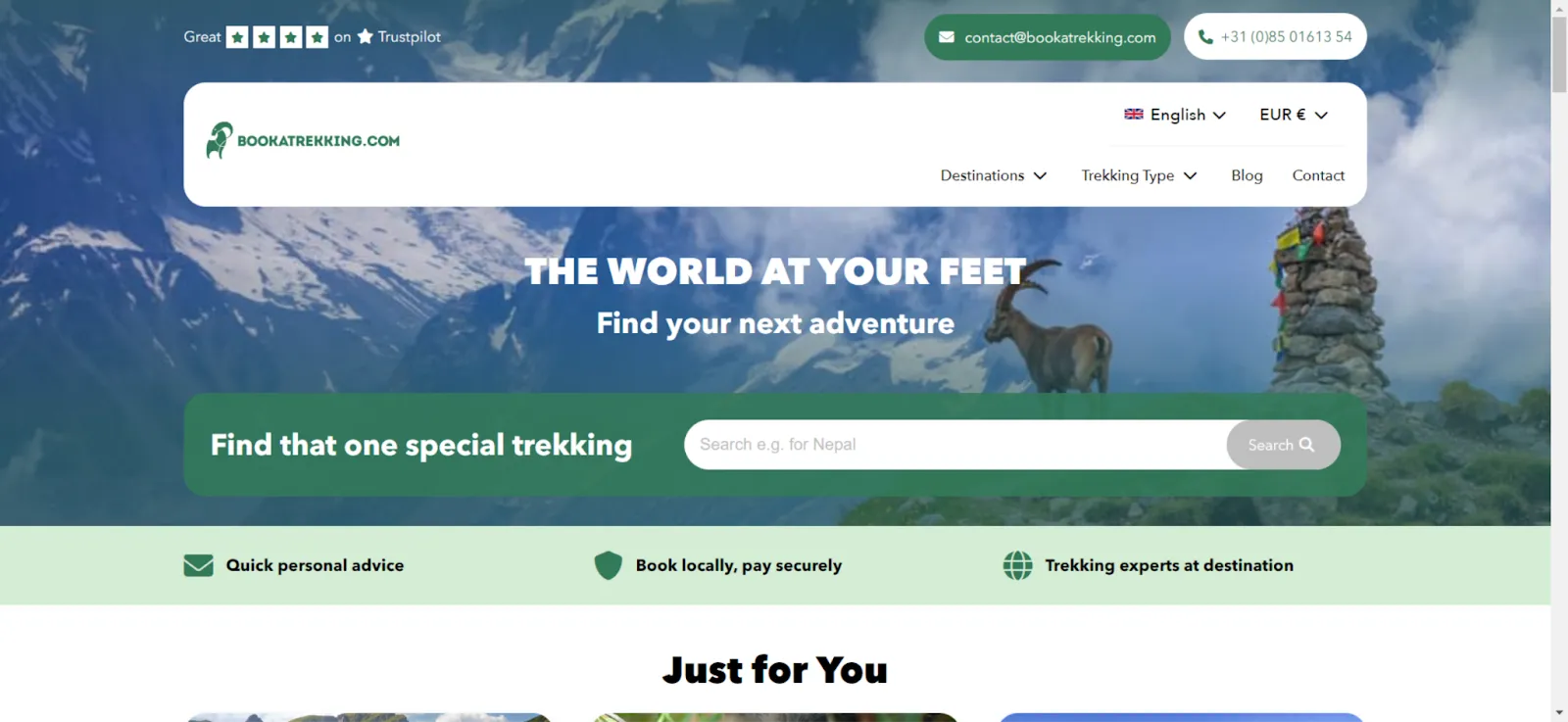
A person mountain hiking overlaid with a financial graph
Economic Benefits of Outdoor Recreation And Tourism
The world has witnessed a remarkable surge in outdoor recreation and tourism in recent years. The desire to connect with nature, seek adventure, and explore unique landscapes has driven millions of people into the great outdoors. Whether hiking through pristine forests, kayaking along crystal-clear rivers, or camping beneath the starry night sky, outdoor recreation has become a cherished escape from the hustle and bustle of everyday life.
This article explores the profound economic benefits of outdoor recreation and tourism, shedding light on how this industry has evolved into a robust economic force. As we delve deeper, we'll uncover the impact of outdoor recreation on job creation, its role in stimulating local economies, and the substantial investments made in infrastructure development.
Economic growth and job creation
The economic engine of outdoor recreation and tourism is nothing short of impressive. It's a force that fuels growth, generates revenue, and creates employment opportunities while showcasing the breathtaking beauty of our natural world.
Statistics on the contribution of outdoor recreation and tourism to GDP
Outdoor recreation and tourism have evolved into economic powerhouses, contributing significantly to Gross Domestic Product (GDP) in many countries. These sectors encompass various activities, from adventure tourism and wilderness exploration to ecotourism and heritage travel.
In 2021, outdoor recreation contributed $454 billion (1.9%) to US GDP. This is more than twice the size of motor vehicle manufacturing and air transportation, three times the size of oil and gas development, and nearly three-and-a-half times the size of performing arts.
From 2020 to 2021, the US GDP contribution from outdoor recreation increased by 20.8%. Employment increased by 13.1%. Outdoor recreation remains a significant sector of the U.S. economy.
Such statistics underscore the industry's substantial influence on the broader economy.
The role of small businesses and entrepreneurs
While major attractions and well-established tour operators play a pivotal role in the industry, small businesses and local entrepreneurs often drive its growth. Outdoor recreation and tourism provide fertile ground for individuals to turn their passion for nature into thriving enterprises. From mom-and-pop outfitters renting kayaks and camping gear to artisanal food producers specializing in local delicacies, the industry enables many small businesses to prosper.
Job creation in rural and urban areas
One of the most tangible benefits of the outdoor recreation and tourism industry is its ability to create jobs in both rural and urban areas. In rural regions, outdoor tourism can be a lifeline, offering employment opportunities in hospitality, guiding services, and infrastructure maintenance. In urban centers, it sparks demand for marketing, technology, and administrative roles, further diversifying the job market.
Moreover, these jobs are often deeply interconnected with the local culture and traditions, adding a unique flavor to the overall tourism experience. In many cases, these jobs can be more sustainable and less prone to economic downturns than positions in other industries, as people yearn for experiences in the great outdoors, regardless of broader economic conditions.
Stimulating local economies
The economic ripples caused by outdoor recreation and tourism extend well beyond the immediate activities and attractions. These industries can stimulate local economies, generating substantial revenues that enrich communities and empower businesses.
The multiplier effect of tourism spending
Outdoor tourism has a unique feature known as the "multiplier effect." When a traveler or tourist spends money on lodging, dining, recreational equipment, and other services, the money circulates through the local economy, benefiting many businesses. For instance, a visitor staying at a local hotel not only supports the hotel itself but also local restaurants, shops, transportation services, and more. This interconnection enhances the overall economic well-being of the community.
How outdoor recreation supports local businesses
Local businesses play a vital role in the outdoor recreation and tourism ecosystem. Restaurants, hotels, outfitters, and artisan shops are integral to visitors' experience. Communities that strategically invest in these businesses, promoting their unique offerings and services, can reap substantial economic benefits. Furthermore, as these businesses grow and prosper, they often give back to the community by creating jobs and supporting local causes.
The economic stimulus of outdoor recreation is not limited to established tourist destinations. Communities with untapped natural beauty can harness this potential to diversify their economies, reduce seasonal economic fluctuations, and enhance overall vitality. As outdoor tourism becomes more inclusive and sustainable, the benefits to local economies are poised to become even more profound.
Bookatreking - a great example of stimulating locals

Bookatrekking.com is a great example of a company that supports local economies. This company offers people a wide variety of trekking opportunities. Working with qualified and independently reviewed locals worldwide, they offer the highest-ranking treks at the lowest pricing.
Bookatrekking believes the best way to support local communities is to collaborate with them directly. And so, this team set out on a mission to find local guides in the world's most remote corners. From the towering peaks of the Himalayas to the lush jungles of the Amazon, they met incredible people who were not only experts in their terrain but also deeply connected to their communities.
Each partnership forged was more than a business deal; it was a pact of mutual respect and a shared vision. The local guides on Bookatrekking weren't just there to lead treks. They were the embodiment of the traditions, stories, and wisdom of their people. They opened their communities, homes, and hearts to travelers, offering an authentic experience beyond the ordinary tourist trail.
Diversifying revenue streams
The economic benefits of outdoor recreation and tourism extend beyond immediate visitor spending. One of the industry's strengths lies in its ability to diversify revenue streams and create new opportunities for businesses and communities.
How communities can leverage their natural assets
Every community possesses unique natural assets, be it pristine wilderness, scenic landscapes, or distinctive local flora and fauna. These assets are attractions for tourists and revenue sources for local businesses and organizations. Communities can strategically leverage their natural beauty by promoting eco-tourism, birdwatching, wildlife safaris, and other nature-centered activities, attracting diverse visitors.
Agri-tourism and sustainable agriculture
Fusing outdoor recreation and agriculture is a compelling example of diversifying revenue streams. Agri-tourism, encompassing activities like apple picking, vineyard tours, and farm stays, allows communities to showcase their agricultural heritage. It provides farmers with an additional source of income and educates visitors about the importance of sustainable, locally sourced food.
Cultural and heritage tourism
Incorporating cultural and heritage elements into outdoor tourism broadens the appeal and enriches the visitor experience. Local museums, historical sites, and festivals can celebrate a community's unique identity, creating a multifaceted attraction. This diversification draws in a broader range of tourists and supports artisans, historians, and cultural institutions.
Diversifying revenue streams is not merely about attracting more tourists; it's about tapping into the full potential of a community's assets. By offering a variety of experiences and activities, communities can maximize their economic potential, build resilience against downturns, and support a wider range of businesses and individuals.
Conclusion
One thing is clear as we conclude our exploration of the economic benefits of outdoor recreation and tourism. This dynamic industry is far more than just a source of leisure and adventure. It stands as a vibrant testament to the power of nature, adventure, and human curiosity to drive economic prosperity and enrich communities.
The statistics speak volumes. The contributions of outdoor recreation and tourism to GDP, the flourishing small businesses, and the countless jobs created underscore this industry's immense economic potential. Its ability to revitalize local economies, the multiplier effect of tourism spending, and the transformative impact on communities reveal the profound influence of outdoor recreation.


